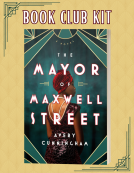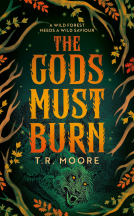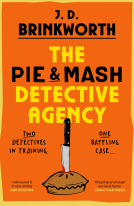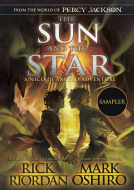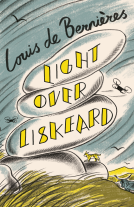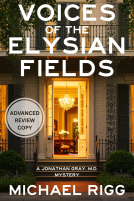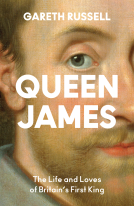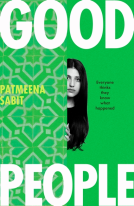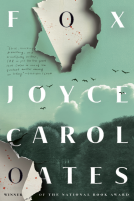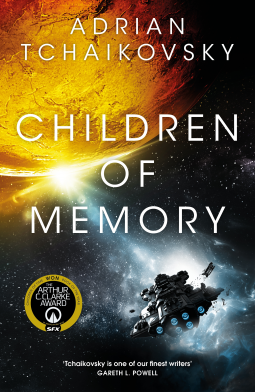
Children of Memory
by Adrian Tchaikovsky
This title was previously available on NetGalley and is now archived.
Send NetGalley books directly to your Kindle or Kindle app
1
To read on a Kindle or Kindle app, please add kindle@netgalley.com as an approved email address to receive files in your Amazon account. Click here for step-by-step instructions.
2
Also find your Kindle email address within your Amazon account, and enter it here.
Pub Date 24 Nov 2022 | Archive Date 1 Dec 2022
Pan Macmillan | Tor
Talking about this book? Use #ChildrenofMemory #NetGalley. More hashtag tips!
Description
From the award-winning master of sci-fi Adrian Tchaikovsky, Children of Memory is the unmissable follow-up space opera to the highly acclaimed Children of Time and Children of Ruin.
When Earth failed, it sent out arkships to establish new outposts. So the spaceship Enkidu and its captain, Heorest Holt, carried its precious human cargo to a potential new paradise. Generations later, this fragile colony has managed to survive on Imir, eking out a hardy existence. Yet life is tough, and much technological knowledge has been lost.
Then strangers appear, on a world where everyone knows their neighbour. They possess unparalleled knowledge and thrilling new technology – for they have come from the stars, to help humanity’s lost colonies. But not all is as it seems on Imir.
As the visitors lose track of time and memories, they discover the colonists fear unknown enemies and Imir’s own murky history. Neighbour turns against neighbour, as society fractures in the face of this terrifying foe. Perhaps some other intelligence is at work, toying with colonists and space-faring scientists alike? But not all questions are so easily answered – and the price may be the colony itself . . .
Children of Memory by Arthur C. Clarke Award-winning author Adrian Tchaikovsky is a far-reaching space opera spanning generations, species and galaxies.
Available Editions
| EDITION | Other Format |
| ISBN | 9781529087178 |
| PRICE | £20.00 (GBP) |
| PAGES | 496 |
Average rating from 50 members
Featured Reviews
I have absolutely no idea where to start withy this review. I am just so blown away by this book, and all the directions it took me in, leaving me emotionally raw by the end of it.
To read this book, you really need to have read Children of Time and Children of Ruin, or most of this really will make little sense. And if you have not read them, then why not? They are two of the greatest sci-fi books I have read, and this one just tops the bill in my - humble - estimation.
The characters you meet in this book have a true way of pulling at you from the word go, once you learn what has happened in the years since the last book. But what happens on this new planet, with the addition of the Corvids (who I personally loved!) I don't want to say anymore as I don't want to give any spoilers, but it is a like an emotionally game of bumper cars except my car has no battery and I am getting bumped from every side.
A must read in the series, and now I seriously have no idea where the direction the next book will go, but woh boy, am I looking forward to it.
I'll admit it, "Children of Memory" had me confused for a large part of the book and then things started to click in my brain and... Whoa! What a brilliant concept! I love Adrian Tchaikovsky's writing, and I always know I'm in for an interesting read when I pick up one of his books. So far, the "Children of Time" series has failed to disappoint... Can we have at least 3 more books, please?
My thanks to the author, publisher, and NetGalley. This review was written voluntarily and is entirely my own, unbiased, opinion.
Liff’s grandfather was the captain of the ark spaceship Enkidu, one of the large ships that carried thousands of people from Earth when the planet died. The ship travelled for centuries before reaching Imir, a world barely capable of supporting life, but the ship was failing, and the crew had no choice but to land. By the time Liff is born, the community on Imir has scratched out a meagre existence on the planet. Life is tough and getting harder. Things are made worse by the residents losing their memories of past events, creating the rumour other people on the planet want to harm the settlers. Suspicion falls on Maria, Liff’s teacher, who has come from a farm far from the main town. Maria and Liff must uncover the truth of the missing memories before it is too late for the colony.
Book 3 of The Children of Time series starts with the crew of an ark ship waking up to their worst-case scenario. The planet they had travelled for years to reach wasn’t the Eden they were hoping for, and their ship could not go any further. The crew are beset with impossible decisions from where to land to who; of their fifty thousand sleeping souls on board, they wake up. Imir shows signs of some of the original terraformers who had left Earth to pave the way for future generations, but not enough change has happened. It is a grim start that sets the tone for the rest of the book.
By the time we met Liff, generations had passed, and the colony had reverted to a farming community with limited technology and plenty of Middle-Age superstitions. The world-building is perfect; it’s easy to believe the community had regressed because their equipment was so faulty when they arrived. Liff believes that a witch lives in the forest near her house and in the Seccers, a secretive second colony whom no one has ever seen, but is blamed for all the wrongs befalling her home town because it is easier to blame a faceless other than admit your neighbours are robbing you.
My only complaint with the story is in the middle, where Maria’s background is revealed. She is an outsider, a visitor from another planet, but she isn’t responsible for what’s happening on Imir. We don’t follow Maria’s path chronologically. There are vague timescales at the start of each section, like Not Long Ago or Long Ago, but these didn’t help me easily slot each event in a timescale. I had to reread parts to put the jigsaw together. Time is a very fluid concept in this book. However, I persevered, and everything made perfect sense by the end. Children of Memory is a book that definitely warrants a second read.
Children of Memory is the third book in a series, and while it’s always good to read what’s gone before to understand the subtleties you might otherwise have missed, it’s not essential in this case. The start of the book has an excellent and detailed prologue that explains how certain species, spiders, octopuses, humans and a particular microbe, have all achieved a heightened self-awareness and outstripped their predecessors. This is repeated within the book with a new species of ravens called Corvids, and there is much speculation about whether the Corvids are self-aware, which is a major theme for the book – what classes as self-awareness, and what can achieve it.
Children of Time is another masterpiece from Adrian Tchaikovksy, blending and bending genres to create something impossible to define. There are enough riddles and surprises to keep you guessing until the end, and I loved the blend of the indomitable human spirit overcoming all odds juxtaposing our reliance on technology that will ultimately be our downfall. Highly recommended.
 Christopher M, Reviewer
Christopher M, Reviewer
Children of Memory is the third in Adrian Tchaikovsky's Children of Time series, and much like its predecessors is, to be frank, an absolute banger of a story. It's also, that aside, a book that's difficult to describe succinctly. It's a book that grapples with big ideas about mortality and personhood, but also explores the more personal, intimate stories of people struggling to make lives in a hostile environment - and, to be fair, some of those people aren't necessarily human. That dovetailing of big ideas with emotional, honest, intimate moments is something Tchaikovsky has mastered, and it works well again here. If you're here for the raw, messy, wonderfully crafted characters, you're good. If you're here for a plot that will grab hold as tension ramps up and into catharsis and up again,..you're good. If you're here for an imaginatively crafted future and an exploration of larger concepts in a narrative framework, then again, this one's for you. Which is a long winded way of giving the short version, this is a damn good book, and you should read it.
Speaking of the world. Well, we're in an interesting space here. Humanity is out of the bottle, in ships that can leap between solar systems, looking for any of its own. They're looking on planets that were scheduled for colonisation before the collapse of civilisation on Earth put a damper on things. Post-recovery, we're once again out here causing trouble. Though now we're doing it with friends, including sentient spiders, octopi, and bacteria which can absorb personalities and craft bodies and take them for a ride. It's an absolutely wild space, and one that's about to get even stranger. There's two major pieces of setting at play. One is a colony, populated by humans, whose past history we're slowly exposed to over the course of the book. A hardscrabble world on the bare edge of possible survivability, and a crew struggling to make things sustainable while thawing out the frozen sleeper cargo they brought with them gives things a terrifying frontier feel. The blend of the high tech and the low, the struggle at the edge of survivability, gives the setting an immediacy and a power it's hard to overemphasise. You can feel for these people, scrounging out a life from soil they have to make live for them, while overhead a sleeper ship circles in high orbit. And then, well, then there's the birds. Survivors of a research and terraforming team gone horribly wrong after collapse, evolving under pressure into duos that between them manage a convincing appearance of sentience, but individually definitely aren't. As characters they're fantastic, and I'll chat a bit more about that in a second, but wanted to say that the history of these duos, the desperation of a team trying to build something from the wrong side of societal collapse, that history is fantastic, Vividly imagined, authentically described, laced with the emotion and passion and horror that makes for authentic life.
The characters match that feeling actually. There's the captain of the slow seed ship, desperately trying to pull tech and crew from the shattered remnants of his craft, and build a civilisation back up from nothing. Surrounded by his command crew and survivors, you can feel the pressure on them all, you can feel the passion and energy that animates a people who know that their survival is not guaranteed. Who know that the survival of everyone after them is not guaranteed. Who know they have to build something. They're people, top to toe. But the same is true of the ravens, talking to each other and construction their discussions with other people in terms of cultural references and constructed meaning. They're people, even if they're different. And the people of our future, the octopi and the living gestalts and the spiders and the humans learning to be better. They're all people, even in they're not all humans. And the differences of their lived experience are often, though not always subtle. And it's amazing how they all feel like people, but they also feel strange. But they feel genuine, and that's what matters - the experiences are comprehensible but different, and that's sometimes hard to get used to, but it's also an absolute delight. These are living breathing real people, they're just different to us, and how we expect to be. But they're amazingly well realised, and great fun to read.
Which is true of the story too. I won't spoil it , because there's some twists in there that took me a little while to absorb. But I will say that it works across multiple layers. This is a story which explores what it means ot be sentient. Explores the collapse and rebuilding of societies. Explores how people cope and manage in crisis. Explores identity and reality. But also explores family relationships and friendships and meaning. It doesn't shy away from either of these, and builds a story that is emotionally wracking but also an extremely compelling page-turner of action and adventure and mystery as a result.
Which brings me back to the beginning: this book is an absolute banger, Tchaikovsky has hit it out of the park again, and you should, if you're a sci-fi fan, read it
Readers who liked this book also liked:
We Are Bookish
Historical Fiction, Literary Fiction, Multicultural Interest
Rick Riordan; Mark Oshiro
Children's Fiction, LGBTQIA, Teens & YA
